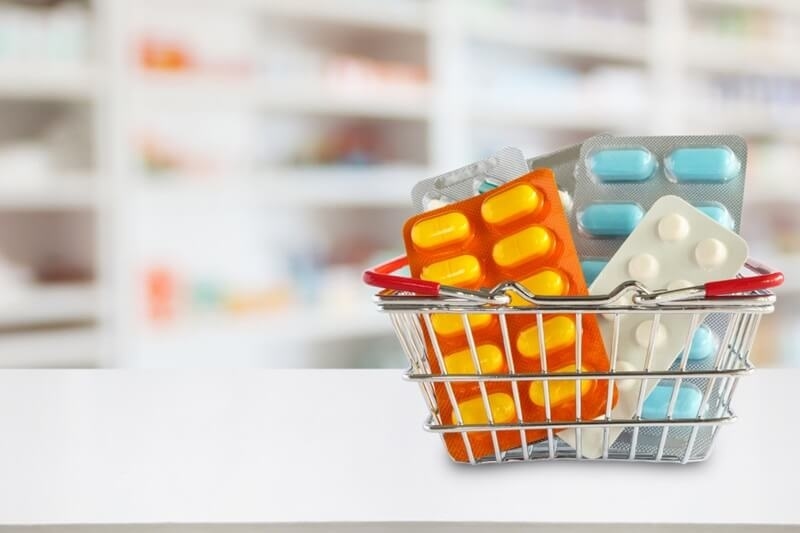
Over the counter medicines are extensively utilized to control common health issues. These drugs can be used to relieve moderate pain, cold symptoms, allergies, or stomach discomfort. Their ease of use makes them a preferred option for adults as well as teens. Nevertheless, it is important to understand that just because they can be bought without a prescription does not mean they are safe.
This manual includes tips for adults, teens, and caregivers on what they need to do to achieve the proper use of over the counter medicines.
Non-prescription medicines are those products that can be purchased directly from a pharmacy without a doctor's prescription. They are designed for everyday, non-life-threatening health issues. However, despite their availability, these products still contain active ingredients that cause changes in the body and side effects if they are used incorrectly.
Adults may be overconfident that they know the correct ways of using such medicines, yet depending on the product or health condition, the instructions may vary. Teenagers are especially exposed to the risk of self-medication without supervision, while the caregivers have to ensure that the right methods are practiced and the use is controlled.

Using safe methods is a crucial factor in preventing the improper use of medicines and the development of side effects. Labels on over-the-counter medicines provide instructions, warnings, and dosage advice. Strict adherence to these rules found on the label assures the medicine is used in a proper way.
Parents and teachers need to be role models of safety behaviors to the adolescents which includes proper measuring of doses and why it is important to follow the directions. Adults also should not depend on their memory alone but rather they have to double-check every little detail on the label.
The amounts and limits given in instructions are targeted to strike a balance between effectiveness and the safety of the body. By taking more than the recommended amounts, one will not get well quicker and may develop serious health problems.
If a person is suffering from some internal organ problems, such as liver or kidney diseases, then there is always a possibility that the dosage in the medicine needs to be adjusted. Teenagers, due to their small stature, may require a lower dosage even when the packaging contains adult instructions. The caregivers must strictly ensure that medicines are given to children only after considering their age and weight.
By taking dosage limits into account, the safety of the patient is guaranteed, and the occurrence of side effects is greatly reduced.
The dangers of interactions are brought about when over-the-counter medicines change the way other products work or when food, drinks, or supplements influence them. Adults are usually on a number of drugs and supplements at the same time, which may lead to interactions without their knowledge. Teens, on the other hand, might be mixing products just for fun, not thinking about the results that come after.
Caregivers should monitor usage and keep a record of all medicines in the household.
Interaction risks, if prevented, ensure that medicines do not compromise the safety and health of the user, and that they work in the right way.
Most over-the-counter medications, if properly stored, will retain their effectiveness, and accidental misuse as a result of medications being mixed up can be prevented. It is not a drug but rather a remedy that should always be kept in a cool, dry place. Moisture and heat, besides causing various issues, will also lower the efficacy of medications.
Adults living alone or caregivers should take care that children and teenagers cannot reach medicines. Furthermore, single adults ought to administer medicines properly in order to avoid mistakes.
Observing these storage tips will promote the safety of the patients and reduce the chances of unintentional exposure to the drugs.
Adolescence is that period when teenagers want to do things their own way, but they might not really grasp all the dangers of over the-counter drugs. The caregivers should be the ones to let the kids know the truth about safe use, giving only the right dose, and the dangers of interaction. It will be immensely useful for them to learn the correct ways by watching the demonstration directly from the caregiver.
Adults may be tempted to think that over the counter medications are a piece of cake for them to use, but some elements such as age, new health problems, or other drugs that they may be taking can greatly alter the body's reaction. Not taking the safety instructions or dosage limits seriously might result in problems that can be very serious.
The safety of patients among adults depends on goals being realized through the use of awareness, close supervision, and responsible behavior.
Caregivers have a crucial role in ensuring the safe use of over-the-counter medicines. They are the managers of the household, the supervisors of usage, and the educators of safe habits for the teens and other family members. The avoidance of accidents and thus the guarantee of the safety of all members of the household is the result of the systematic organization of their practices.
By being alert and proactive, caregivers do the work of supporting patient safety and minimizing the risks of people who are under their care.
Over-the-counter medicines can offer quick relief of everyday minor health problems; however, their use must be responsible and careful. Adults need to strictly follow the recommended dosage, teens should be encouraged to adopt safe usage habits, and the responsibility of the caregivers is to supervise, guide, and ensure the correct use of the medicine.
All these measures, i.e., being cautious about interaction risks, following storage guidelines, and ensuring patient safety, will assure that such medications will work adequately and will provide the best outcomes.
This content was created by AI